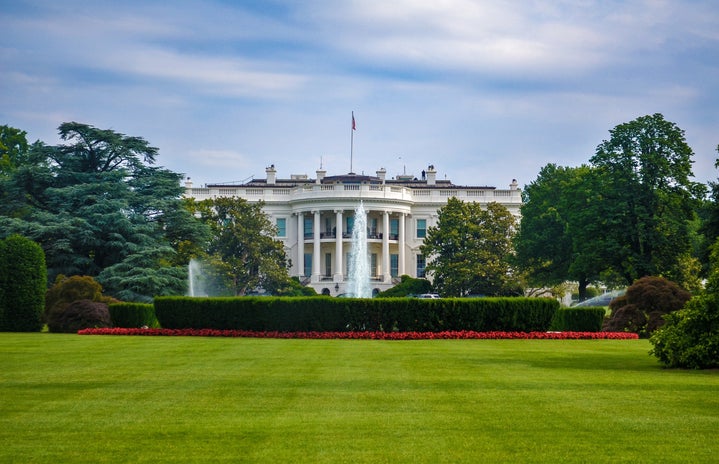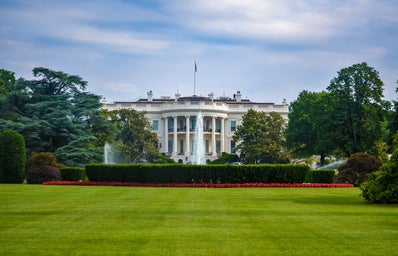Editor’s Note: This article is the perspective and opinion of the author and does not reflect the views of Her Campus at Cal Lutheran or Her Campus Media. Thank you.
Like many this summer, I watched the events unfold in Charlottesville with a sense of utter dismay. The year 2017 in the United States of America, and people were in the street publicly claiming that their race was somehow superior to others. Claiming that America should be white. It was repulsive. Nothing could be easier for any decent human being to denounce. And yet, our President seemed to find this task difficult. Trump condemned the “egregious display of hatred, bigotry and violence on many sides,” as if those standing against Nazism could somehow be equated to the Nazis themselves. While two days later, he would call out the supremacist groups individually, he would only strengthen his original statements the following day in an unscripted discussion on the rallies at a press event. He again stated that there was “blame on both side,” claimed that both sides were responsible for violence, and joined with the supremacists in opposing the removal of confederate statues. These words, even from the mouth of someone who has proven time and time again that they are capable of sinking to even lower levels, left me feeling gutted and only cemented the unpatriotic sentiments I have been experiencing under this presidency.
From the moment election results became apparent in November, the phrase “Not my President” has been used by those outraged at Trump’s holding of the highest office. This phrase is problematic, because, yes, no matter your feelings towards him, if you are American, Donald Trump is your president. However, it does point to the greater problem at hand here: how can one feel pride for one’s country when the person democratically elected to lead it so utterly fails to represent one’s ideals? The easy solution? “Not my president.” But yes, unfortunately, he is.
The truth is, reconciling political affiliations with the pride connected to national leadership is an issue simply inherent in the U.S. style presidential system. Unlike in a parliamentary system like the U.K., where political power is invested in the Prime Minister while symbolic, patriotic power lies with the royal family, the U.S. combines both actual and symbolic power in a single leader. It’s a process that alienates half the country from a beloved national figure who embodies patriotism every four years. Democrats felt it under Bush’s presidency, Republicans under Obama, and yet, something this time around is different. It is no longer a situation where I am not especially proud to call the president my leader, but one where I am appalled by the very words “President Trump”. It is not just that I have been stripped of a beloved national figure for the time being, as many Republicans were under Obama, but that faith in my country’s values have been profoundly eroded.
“Sadly, clearly we are not.”
And that’s what’s made these past few months so difficult. The difference between losing faith in leadership and losing faith in country is drastic, and while I’m not at the stage of the latter yet, I am at a place where when I think of the United States I do not instinctively feel pride, but rather question what this country is. It’s a point the columnist Leonard Pitts Jr. brings home in his article “Sadly, clearly we are not ‘better than this.’” Like those who reacted to Trump’s election with “Not my President,” Pitts writes to those whose instinctive reaction to situations like Charlottesville is “we are better than this.” “Better than this?” he writes. “Are we also better than the laws and regulations Republicans in states like North Carolina have imposed with, as one court put it, “almost surgical precision” to suppress the African-American vote? Are we better than a “justice” system that cannot bring itself to punish police for killing unarmed black people, even when video proves the crime?” My ideal of America is better than this. Other’s ideals are evidently worse than this. And all of these ideals stand underneath one flag to create the reality of a confusing mesh that is less “melting pot” and more “identity void.” As Pitts concludes “‘This is not America…’ But yes, sadly, it is.”
The point I want to make here is not that I am not proud to be American. There is plenty to be proud of in this country. I am proud to be a member of a country created with a vision of change and equality, to be a member of the world’s first modern democracy. I am proud of the values of our Constitution, especially the 1st Amendment which provides me the freedom to write this article. I am proud of the people who have fought tirelessly in this country for centuries on end for the rights that their Constitution promised them. And I am proud of those who keep fighting today, including Heather Heyer, who gave her life combating pure hatred in Charlottesville. Our central values, history of activism, and today’s activism are my sources of patriotism in the Trumpian age. But when I pledge allegiance to the flag, when I say that this is “one Nation under God, indivisible, with liberty and justice for all,” how can I not question the validity of those words under our current circumstances? How can I not be reminded of all the things I am not proud of in this country? Charlottesville, the repeal of DACA, disregard for our environment, attempts at banning Muslim immigration, attempts at taking health care from the poor in exchange for more money for the rich, plans to build walls instead of bridges, and the man at the head of it all, a man who has defiled the office he occupies and who, while I must call my president, I will never be proud in doing so. I feel leaderless. And in the void established by so many conflicting ideals and realities, I am starting to feel countryless as well.
All photos public domain and found on pixabay.com.
Editor’s Note: This article is the perspective and opinion of the author and does not reflect the views of Her Campus at Cal Lutheran or Her Campus Media. Thank you.



